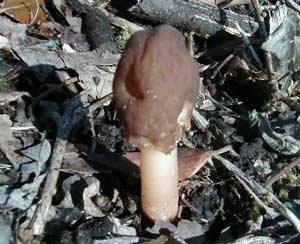Scientists have recently discovered a microorganism that has a strong capacity to absorb carbon, presenting a new idea for combating global warming.
According to researchers, a type of bacterium recently found in the hot springs of a volcano can “consume” carbon dioxide (CO2) at an astonishing rate.
The new bacterium, part of the cyanobacteria family, was discovered last September in the fissures of a volcano near Vulcano Island in Italy, in areas with high levels of CO2 in the water.

Bacteria capable of “eating CO2” discovered in volcanic fissures near Vulcano Island in Italy. (Source: Getty Images).
Researchers state that this organism converts CO2 into biomass faster than any other cyanobacteria known to humanity.
In February, the team also discovered similar bacteria in some hot springs in the Rocky Mountains of Colorado, USA. The results obtained from the US are still being analyzed.
Researchers noted that all data about their bacteria will be published and made available to other scientists in the form of a database linking DNA sequences with stored bacterial samples.
Dr. Braden Tierney from Weill Cornell Medicine and Harvard Medical School shared: “Our main collaborator at Harvard isolated this organism. It grows incredibly fast compared to other cyanobacteria.”
The project is funded by the biotechnology company Seed Health, which has hired Tierney as an advisor.
Seed Health specializes in selling probiotics for human health and has developed a probiotic specifically for bees. The company is also researching the use of microbial enzymes for plastic degradation.
Raja Dhir, the company’s CEO, stated: “Seed Health was founded on the belief that by harnessing the tremendous potential of the microbiome, we have the ability to make significant strides for human health and the entire planet. Our work with Dr. Tierney aligns perfectly with that mission and could help unlock new models for carbon capture.”
The idea of using bacteria for CO2 capture, potentially enhanced by genetic engineering, is an active area of research. A recent review suggests that bacteria can produce useful chemicals while retaining CO2.
According to this review, using bacteria to manage CO2 also has the added benefit of generating useful by-products for industries such as biofuels, pharmaceuticals, and bioplastics.
American company LanzaTech is one of the first businesses in the world to use bacteria to convert CO2 into fuels and commercial chemicals.
Meanwhile, UK-based company CyanoCapture, backed by Shell and billionaire Elon Musk, is harnessing cyanobacteria to produce biomass and bio-oil.
Many other companies are also researching the use of algae to produce biofuels, although ExxonMobil recently terminated its research in this area.
The scientists behind this new research also warn that the recently discovered bacteria are not a “silver bullet” that will solve the biggest challenges of climate change.
In a related development, several types of bacteria found in caves have also been shown to convert CO2 into minerals.
Scientists are aiming to use bacteria to reduce CO2 emissions in the cement production process.





















































